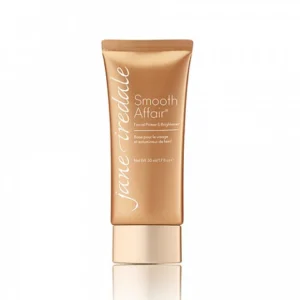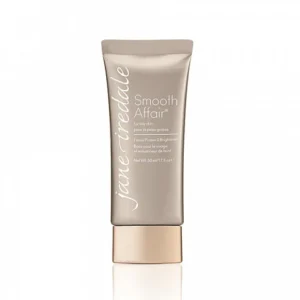Why You Apply Makeup Primer Before Highlighting and Contouring
Before diving into the art of highlighting and contouring, it’s crucial to understand the significance of utilizing a makeup primer in your routine. Makeup primer, also known as face primer, acts as a base that helps to prepare your skin before the application of any makeup products. Using a primer can hydrate your skin and create a smooth canvas for flawless makeup application.
Importance of Using Makeup Primer

Jane Iredale Makeup Primer
One of the main benefits of using a primer is that it helps to extend the wear of your makeup. By applying a primer before your makeup, you can ensure that your makeup lasts longer throughout the day. Additionally, using a primer can help to even out your skin tone and provide a seamless base for the rest of your makeup look.
Benefits of Primer for Your Skin
Depending on your skin type and needs, there are various types of primers available in the market. Whether you have oily skin and need a mattifying primer or you want to hydrate your skin with a hydrating primer, the right primer can help improve the longevity and appearance of your makeup.
How Primer Extends Your Makeup Wear
One common mistake when using a primer is not choosing the correct type for your skin. It’s essential to select a primer that complements your skin type and concerns to maximize its effectiveness. By applying a makeup primer, you can help your makeup stay in place and look fresh throughout the day.
Common Mistakes When Using Primer
Another mistake to avoid is assuming that all primers have SPF protection. It’s important to note that not all primers have SPF, so if sun protection is a priority for you, consider using a sunscreen or a primer with added SPF. By using a good primer that suits your skin and makeup needs, you can achieve a professional makeup look that lasts all day.
Choosing the Best Makeup Primer

Jane Iredale Makeup Oily Skin Primer
When it comes to choosing the best makeup primer for your skin, it’s crucial to understand the different types available in the market. There are primers designed for specific skin concerns, such as oily skin or dry skin. Understanding the various types of primers can help you select the one that suits your skin type and makeup needs.
Understanding Different Types of Primers for Your Skin
Each type of primer works differently with different skin types. For oily skin, a mattifying primer can help control excess oil and shine. On the other hand, if you have dry skin, a hydrating primer can provide the moisture your skin needs for a smooth makeup application. Illuminating primers are ideal for creating a radiant makeup look.
How Primer Works with Different Skin Types
Using the right primer for your skin type can make a significant difference in how your makeup wears throughout the day. If you have combination skin, you may benefit from using a primer that addresses both oily and dry areas. Understanding your skin’s needs is key to selecting a primer that enhances the longevity and appearance of your makeup.
Top Recommendations for Makeup Primers
With so many options available, it can be challenging to find the best makeup primer for your needs. Some popular recommendations from makeup artists include primers that not only extend the wear of your makeup but also provide additional skincare benefits. Experimenting with different primers can help you determine the perfect match for your skin and makeup routine.
Proper Application Techniques

Photo by Johan Mouchet on Unsplash
When it comes to applying makeup primer, following the correct steps is essential to ensure a flawless makeup look. Let’s delve into a step-by-step guide on how to apply makeup primer effectively. Start by cleansing your face to remove any dirt or impurities. Next, apply a pea-sized amount of primer to your fingertips and gently massage it onto your skin in upward motions.
Step-by-Step Guide on How to Apply Makeup Primer
After applying the primer, give it a few minutes to set before moving on to your foundation. Remember to focus on areas where your makeup tends to fade or crease, like around the nose and mouth. For those makeup-free days, you can still benefit from using a primer to hydrate and protect your skin.
Tips for Applying Makeup Primer Without Makeup
When it comes to highlighting and contouring, using a primer can enhance the effects of these techniques. A primer can help your highlighter pop and your contour blend seamlessly, creating a more defined look. By selecting an illuminating primer, you can achieve a radiant finish that complements your makeup application.
Maximizing the Benefits of Primer in Highlighting and Contouring
By incorporating a primer into your highlighting and contouring routine, you can ensure a smoother application and longer-lasting makeup. The right primer can help create a flawless base for your face makeup, allowing your highlight and contour to stand out. Experiment with different types of primers to find the one that works best for your skin type and makeup preferences.
Enhancing Your Makeup Look with Primer
Using a primer before highlighting and contouring can elevate your makeup look to the next level. An illuminating primer, for instance, can add a radiant glow to your skin, enhancing the effects of your highlighter. By creating a smooth base, the primer enables your contour to blend seamlessly, resulting in a more defined appearance.
Creating Flawless Highlighting and Contouring with Primer
Applying a primer allows your highlight and contour to stand out by providing a flawless canvas. The primer helps your face makeup glide on smoothly, ensuring long-lasting wear. Experimenting with different types of primers can help you achieve the perfect look that complements your skin type and makeup preferences.
How to Use Primer to Achieve Long-Lasting Makeup
Understanding how to use a primer effectively is essential for achieving makeup that lasts all day. Start by applying a small amount of primer and gently massage it into your skin. Let the primer set before proceeding with your makeup routine to maximize its benefits.
Understanding the Relationship Between Primer and Makeup Application
The relationship between primer and makeup application is symbiotic. A good primer not only helps your makeup stay in place but can also improve the overall appearance of your makeup look. By selecting the right primer for your skin type and concerns, you can enhance the longevity and finish of your makeup.
Frequently Asked Questions about Makeup Primers
1. What is a makeup primer and why should I use it?
A makeup primer is a product that helps to prepare your skin for makeup application. It acts as a base that helps makeup products apply smoothly and evenly. Using a primer can help your makeup last longer and stay in place throughout the day.
2. How do I hydrate my skin before applying a primer?
Before you apply primer, it’s important to hydrate your skin using a hydrating primer or a moisturizer. This will ensure that your skin is well-prepped and ready for makeup application.
3. Can a primer help even out my skin tone?
Yes, a primer can help even out skin tone by creating a smooth canvas for your makeup products. Choose an illuminating primer or a mattifying primer based on your skin type and skin tone for best results.
4. How does a primer benefit oily skin?
For oily skin, using a primer can help control shine and keep makeup in place for longer periods. Look for a good primer that is specifically formulated for oily skin for optimal results.
5. Should I apply a primer before or after my skincare routine?
It is recommended to apply a makeup primer after you have completed your skin care routine and before you start applying the rest of your makeup. This will help your makeup products glide on smoothly.
6. Can a primer help my makeup stay put all day?
Yes, a primer can help your makeup stay in place and last longer throughout the day. It acts as a barrier between your skin and makeup products, helping them adhere better.
7. Do I need to use a primer with SPF?
It is recommended to use a separate sunscreen with SPF before applying makeup, rather than relying solely on a primer with SPF for sun protection. This ensures that you are adequately protected from harmful UV rays.

